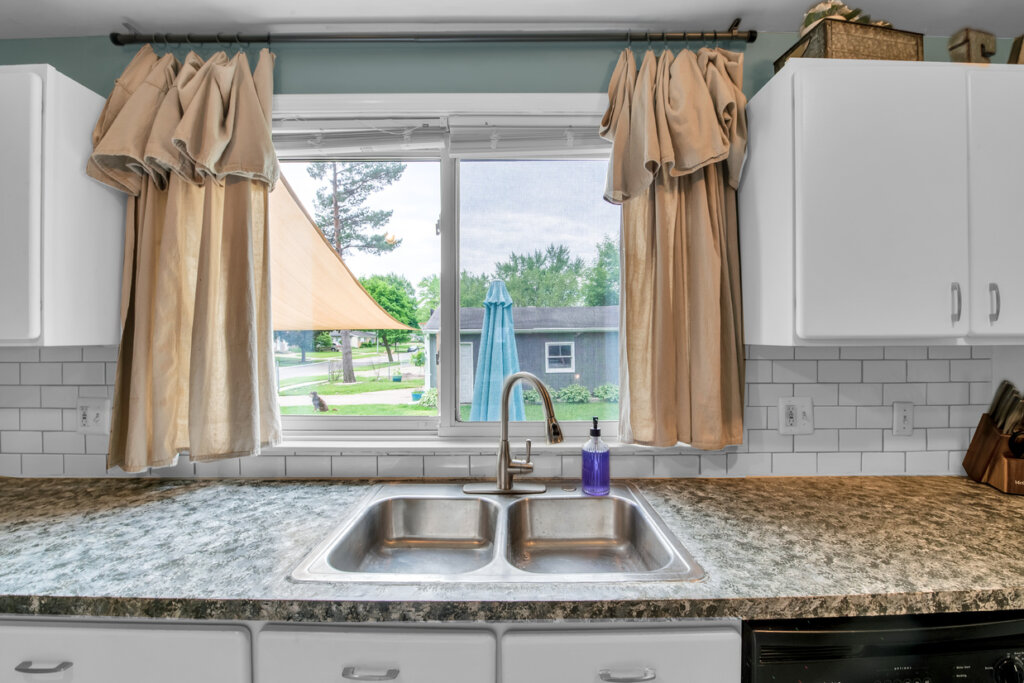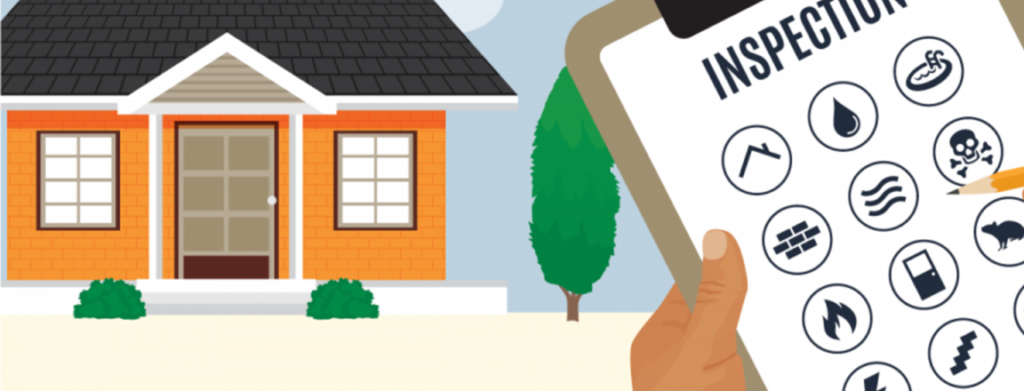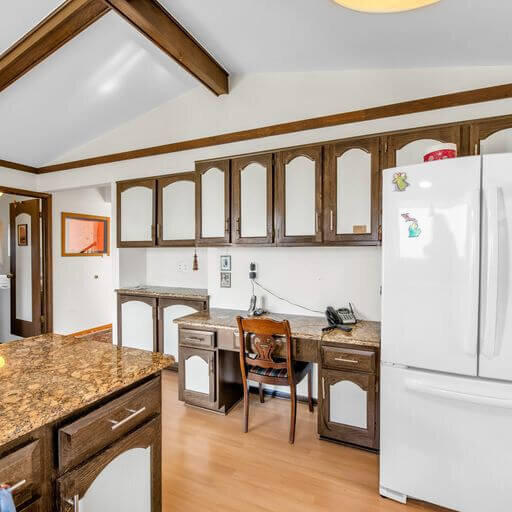If you want to sell your house fast in Detroit, Michigan and also, for the highest possible price, here’s what you need to do…
1. Find out what your house is worth!
2. Get it ready for sale
3. Know exactly what to expect
4. Lock the best deal and close it
5. Take measures to protect yourself

1. Find out What your House in Detroit is Worth!
What is my home in Detroit worth? This is the question on top of every homeowner in Detroit looking to sell their house and rightly so.
After all, only once you know the true market value of your house can you sell it for the best price. Here’s how you can find out what your house in Detroit is worth:

Use an Online Home Value Calculator!
There are many online calculators that can give you an estimate of your home’s value based on its location, age, condition, size, and other factors. These calculators are a good starting point, but remember that they should not be considered a final value.

Get an Appraisal
A home appraisal is a professional assessment of your home’s value by a licensed appraiser. This is the most accurate way to determine your home’s worth, but it can also be the most expensive.

Look at Recent Sale Prices of Similar Homes in your Area
You can get a good idea of your house’s worth by looking at the sale prices of similar homes in your area. This information is usually available online or you can get it from your real estate agent.

Talk to Real Estate Agents
Real estate agents can give you an estimate of your home’s value based on their knowledge of the local market. They can also help you sell your home fast if you decide to do so. So, do consult with them.

2. Prepare your Home in Detroit for Sale
Once you know the true market value of your house in Detroit, it’s time you get your home ready for sale. While you are at it, don’t forget that you can increase your home value. Wondering how you can do just that? Here’s a detailed step-by-step guide.
Declutter and Depersonalize
The first step is to declutter your home and remove any personal items. It will make your home feel more spacious and inviting to potential buyers, enabling them to envision themselves living in your home.
Deep Clean
Once your home is decluttered, it’s time to give a deep clean to every nook and cranny.
- Make a cleaning schedule and stick to it. This will help you stay on top of cleaning and avoid letting things get too messy while your house is for sale.
- Clean one room at a time. This will help you avoid feeling overwhelmed and will streamline the cleaning process.
- Use the right cleaning products. Using the right products will make cleaning easier and will also help to protect your surfaces.
- Vacuum and mop regularly. This will help to remove dirt, dust, and allergens from your home.
- Dust regularly. Dust can accumulate quickly and can make your home look dirty.
- Clean windows and mirrors. This will help to make your home look brighter and more polished.
- Clean appliances. Even if the appliances aren’t included in the sale, keep them clean to make the house look better to buyers.
- Clean furniture. How you take care of your furniture is indicative of how you take care of the home itself. Show prospective buyers you care.
- Clean it all: This means cleaning all surfaces, including floors, walls, and ceilings, and windows. Don’t forget the carpets and upholstery.
Make Necessary Repairs and Invest in Home Improvements
If there are any repairs that need to be made, now is the time to do them. This will make your Detroit home more attractive to potential buyers.
But why invest in improving your home when you’re selling it? Well, because you want to sell it for the highest price and also quickly and conveniently.
Here’s how to go about fixing up your house…

- Do your research. You should do your research before undertaking any home improvement project. That includes reading about important things, watching videos, and even talking to people who have done it all before.
- Decide to DIY or hire. There are many projects you can tackle yourself. If you decide to hire it out, be sure to use a vetted contractor, preferably someone that has done work for you or someone you know firsthand. The key to working better with contractors is finding multiple qualified and reliable contractors, getting multiple bids, being upfront about your expectations, communicating clearly, respecting their time and expertise, and compromise when needed.
- Get the necessary tools and supplies. If you’re going to do it yourself, you’ll need to get the necessary tools and supplies. This includes things like tools and fixtures but also things like nails, screws, paint, and lumber. Make sure to get everything you need before you start working, so you don’t have to stop in the middle of the project to go to the store.
- Set aside enough time. Home improvement projects can take a lot of time, so it’s important to set aside enough time to complete them. Don’t try to rush through a project, or you’ll make mistakes. It’s better to take your time and do the job right.
- Have fun. Home improvement projects can be a lot of work, but they can also be a lot of fun. Enjoy the process of making your home more aesthetic and function. Sooner rather than later, you’ll see your hard work pay off.
Improve Curb Appeal
The curb appeal is the single most important thing when it comes to selling your home. It’s what makes the first impression on the buyers and can make or break the sale.

- Trim your trees and shrubs. Trim your trees and shrubs so they look neat and tidy. This will boost the visual appeal of your house.
- Keep your lawn mowed and watered. A well-maintained lawn is one of the first things people notice when they drive up to your house. Make sure your lawn is mowed watered regularly.
- Paint or stain your exterior. A fresh coat of paint or stain can make a big difference in the overall look of your home. Choose a color that complements the style of your house.
- Add flowers or plants. Flowers and plants can add a pop of color and life to your yard. Opt for plants that are appropriate for the climate in Detroit and that will require minimal care.
- Put up some outdoor lighting. Outdoor lighting can make your home look more inviting and can also help to deter crime. Choose lights that are energy-efficient and that will provide adequate lighting for your needs.
- Add some personal touches. Add some personal touches to your home to make it feel more like your own. This could include anything from hanging a birdhouse in your tree to putting out a welcome mat on your front porch.
Improving your curb appeal can help you to sell your home for more money and can also make it more enjoyable to live in. By following these tips, you can enhance the look and feel of your home.
3. Know Exactly what to Expect
Having found the market value of your home in Detroit and gotten it ready for sale, now is the time to focus on external factors.
Stay on top of the Housing Market

Read Real Estate News
Following real estate news will help you stay informed about the latest trends and developments in the housing market.

Talk to Real Estate Agents
Real estate agents have a wealth of knowledge about the housing market. Engage with them to gather insights that can help you make an informed decision.

Attend Open Houses
This is a great way to get a feel for the current market and to see what homes are available in your area.

Use Real Estate Websites
Real estate websites like Zillow and Realtor.com can help you get the pulse of the housing market.
Stage your Home to Convert Prospects
Following are five effective ways of staging your home:
- Declutter and depersonalize: Buyers want to be able to envision themselves living in your home, so it’s important to make it as neutral as possible. This means decluttering any unnecessary furniture and personal items, and painting the walls neutral colors.
- Lighten and brighten: Natural light makes a home feel larger and more inviting. Open the curtains and blinds to let in as much light as possible, and use lamps to add additional light to dark areas.
- Freshen up the smell: Buyers are sensitive to smells, so it’s important to make sure your home smells clean and fresh. Light a few candles or use a diffuser to fill the air with a pleasant scent.
- Make it easy to see the space: Buyers want to be able to visualize themselves living in your home, so it’s important to make it easy for them to see the space. Remove any furniture or other obstacles that block the view of the rooms, and open the doors to let buyers flow through the space.
- Stage the exterior: The exterior of your home is the first thing that buyers will see, so it’s important to make a good impression. Sweep the front porch, trim the hedges, and plant some flowers.

Digitally Market your Home
Harness the power of digital marketing to sell your house on your terms.
Here are a few tried-and-tested real estate marketing tips:

Embrace Social Media
Social media is a great way to connect with potential buyers and sellers, and to promote your house. Make sure you are active on the platforms that are most popular in your area, and post high-quality, engaging content.

Create a Stunning Website
A house website can work really well! Make sure it is well-designed and easy to navigate, and that it includes all of the information that potential buyers need. Get a domain name from GoDaddy and hire website designer and content creators from online freelancing platforms such as Fiverr.

Get Involved in your Community
Attend local events, volunteer your time, and talk to the neighbors. See if anyone is looking to move to the area that could be a buyer for your house.

Use Video to your Advantage
Video is a great way to capture attention and tell your home’s story. Use a videographer and professional editing to showcase the features of your home, and put on social media, including YouTube and the website you create.
Price your Home just Right
If you want to sell fast, you need to price your home right. Instead of trying and failing with different prices, first find the true market value of your home, gauge the market sentiments, and price realistically yet competitively.
- Do your research. Before you put your home on the market, it’s important to do your research and find out what similar homes in your area are selling for. You can use online resources like Zillow or Trulia to get an idea of the market value of your home.
- Be realistic. It’s important to be realistic about the price of your home. If you price it too high, you’ll likely scare away potential buyers. On the other hand, if you price it too low, you’ll be leaving money on the table.
- Price competitively. When you’re pricing your home, it’s important to price it competitively. This means pricing it close to the market value of similar homes in your area. If you price your home too high, potential buyers will simply move on to other homes.
- Be prepared to negotiate. Once you’ve priced your home, be prepared to negotiate with potential buyers. They may offer you a lower price than you’re asking, and you’ll need to be prepared to negotiate in order to get the best possible price for your home.

Host the Best open Houses
An open house is a great way to test the waters, spark interest, get direct feedback, and experiment. So, don’t hesitate in hosting one.
- Choose the right date and time. The best time to hold an open house is on a weekend afternoon, when most people are available to look at homes.
- Advertise your open house. Use social media, flyers, and word-of-mouth to spread the word about your open house.
- Prepare your home. Make sure your home is clean and staged to impress potential buyers.
- Be welcoming and friendly. Greet potential buyers as they arrive and answer any questions they may have.
- Follow up with potential buyers. After the open house, send thank-you notes to everyone who attended and let them know if they have any questions.
4. Understand how to Lock a Deal and Close it
Odds are in your favor. You’ve done everything you had to do to sell your home. Now it’s all about negotiation to finalize the deal and taking care of the paperwork.

Field Offers and Negotiate like a pro
- Be prepared. Before you start fielding offers, be sure to have a clear understanding of your bottom line. What price are you willing to accept for your home? Once you know your bottom line, you can start to negotiate with potential buyers.
- Be confident. When you’re negotiating, it’s important to be confident. Don’t be afraid to stand up for yourself and your bottom line. If a potential buyer offers you a price that’s too low, don’t be afraid to walk away from the deal.
- Be prepared to compromise. Negotiation is a two-way street. You’ll need to be prepared to compromise in order to reach a deal. If a potential buyer offers you a price that’s too high, you may need to come down a little bit in order to close the deal.
- Be professional. Even if you’re negotiating with a potential buyer who is being difficult, it’s important to stay professional. Don’t get personal or let your emotions get the best of you. If you can stay professional, you’ll be more likely to reach a deal that’s fair to both parties.
- Get it in writing. Once you’ve reached a deal with a potential buyer, be sure to get everything in writing. This will protect you in case there are any problems down the road.
Important Information on Real Estate Contracts
A real estate contract is a legal agreement between a buyer and a seller that outlines the terms of the sale of a piece of property. The contract will typically include information about the property, the price, the deposit, and the closing date. It is important to understand the terms of a real estate contract before signing it.

Here are some tips on how to understand a real estate contract:
- Read the contract carefully. Do not sign the contract until you have read it carefully and understand all of the terms. If you do not understand something, ask the seller or their agent to explain it to you.
- Get help from a lawyer. If you are not comfortable understanding the contract on your own, you can always get help from a lawyer. A lawyer can review the contract and explain it to you in plain language.
- Be aware of the deadlines. The contract will typically have deadlines for when certain things need to be done, such as when the deposit is due and when the closing date is. Be sure to understand these deadlines so that you do not miss them.
- Be prepared to negotiate. The proposed contract is not set in stone. Think of it more like a proposal. You may be able to negotiate some of the terms, such as the price or the closing date. Be prepared to negotiate if you want to get the best possible deal.
- Once you sign it’s, binding. The offer or proposal becomes a legal contract when its executed by all parties. This is also once contract that usually doesn’t contain any right to rescission.
All you Need to know About Disclosure Statement
A seller disclosure statement is a document that discloses any known defects in a property to potential buyers. The purpose of the statement is to allow buyers to make an informed decision about whether to purchase the property.
The seller disclosure statement typically includes information about the property’s condition, including any known defects in the structure, the plumbing, the electrical system, and the heating and cooling system. The statement may also include information about the property’s history, such as whether it has ever been flooded or damaged by fire.
The seller disclosure statement is typically completed by the seller and signed by both the seller and the buyer. The buyer should review the statement carefully before signing it. If the buyer has any questions about the statement, they should ask the seller to clarify. If the buyer discovers any defects in the property after they have purchased it, they may be able to sue the seller for damages. The buyer may also be able to rescind the purchase agreement if they can prove that the seller knowingly withheld information about the defects.
Here are some tips on how to fill out a seller disclosure statement:

Be Honest
The most important thing is to be honest about the condition of the property. If you know of any defects, you must disclose them to the buyer.

Be Specific
When describing the defects, be as specific as possible. For example, instead of saying “the roof is in bad condition,” say “the roof has several shingles that are missing.”

Be Prepared to Answer Questions
The buyer may have questions about the defects. Be prepared to answer them as best you can.

Get Help from a Lawyer
If you are not sure how to fill out the seller disclosure statement, you can always get help from a lawyer.
Ace your Home Inspections
Home inspections are often deciding factor for buyers when it comes to finalizing a sale. The process is generally designed to uncover any hidden problems with the home’s structure and systems.

You as a seller can take proactive steps to ensure a smoother inspection, resulting in a faster, more lucrative sale. Here are a few things you can do to ace your home inspections:
- Declutter and clean up: A clean and organized home gives the impression of a well-maintained property. Make sure that every area of your house is clean, organized, and accessible. This includes basements, attics, and utility closets which inspectors will need to access.
- Address known issues: If you’re aware of any issues such as leaks, electrical problems, or appliance malfunctions, fix them ahead of time. Any known issues will be highlighted during the inspection, so it’s better to address them beforehand.
- Pre-inspection: Consider conducting a pre-inspection. This allows you to discover and address issues before the buyer’s inspection. It can also give potential buyers confidence in the condition of your home.
- Documentation: Provide documentation for any maintenance or repairs you’ve undertaken. This will demonstrate your attention to the upkeep of your home.
- Utilities on: Ensure all utilities are turned on. Inspectors will need to check things like the water, electricity, and heating systems.
By ensuring your home is in the best possible condition before the inspection, you will not only enhance the chances of a successful sale but also possibly add to the value of your home. Investing time and effort in preparing for a home inspection can pay off in a big way when it comes time to sell.
Check off the Home Appraisal
The home appraisal process involves a professional appraiser who, commissioned by the lender, will inspect your home and compare it to similar properties in your area to establish its value.
The more you can do to showcase the value and desirability of your home, the more likely it is that the appraised value will align with your desired selling price.
While, you might have already done necessary repairs, enhanced the curb appeal, made key improvements, and decluttered, it’s time to go over everything again just to make sure your home is in perfect condition possible. Also, don’t forget to familiarize yourself with recent sales of comparable homes in your area. If you believe these properties align closely with yours, you might want to share this information with the appraiser.

Handle the Closing
The closing is the final step in the home selling process, and it is when the buyer and seller officially transfer ownership of the property.
Closing documents are legal documents that are signed by both the buyer and seller of a property at the closing. The closing documents typically include the deed to the property, the mortgage note, and the closing disclosure. The deed is the legal document that transfers ownership of the property from the seller to the buyer. The mortgage note is the legal document that the buyer signs to borrow money from the bank to finance the purchase of the property. The closing disclosure is a document that summarizes the terms of the sale, including the purchase price, the down payment, and the closing costs.
It is important to understand the closing documents before signing them. If you have any questions about the documents, you should ask the closing agent or your lawyer to explain them to you.
Here are some tips on how to interpret closing documents:
- Read the documents carefully. Do not sign the documents until you have read them carefully and understand all of the terms. If you do not understand something, ask the closing agent or your lawyer to explain it to you.
- Ask questions. If you have any questions about the documents, do not hesitate to ask the closing agent or your lawyer to explain them to you.
Get help from a lawyer. If you are not comfortable understanding the documents on your own, you can always get help from a lawyer. A lawyer can review the documents and explain them to you in plain language.
Deal with Financial and Tax Implications
There are a few financial and tax implications to consider when selling a house.
Capital gains tax: If you sell your home for a profit, you may be liable for capital gains tax. The amount of capital gains tax you owe will depend on your tax bracket and how long you owned the home. If you owned the home for at least two years and lived in it as your primary residence for at least two of the last five years, you may be able to exclude up to $250,000 of the gain from capital gains tax. If you are married filing jointly, you may be able to exclude up to $500,000 of the gain.


Move out
It’s important to know that you don’t always have to move out right away when you sell your house.
You can negotiate “occupancy”, which is time for the seller to occupy the house after the sale is closed. In some places this is referred to as “seller rent-back”.
Sometimes, the buyer will want to hold an escrow for any potential damages that could take place. In some instances the seller will be allowed to occupy the property free of charge. Other times the buyer will expect to be compensated for the time the seller occupies the property. There are two different strategies that are common for a buyer to request payment for occupancy.
1/30th PITI: If the buyer is getting a mortgage, they may ask for the seller to cover their mortgage, taxes and insurance on the property so that they don’t incur any cost for the sellers occupancy. PITI means: principal, interest, taxes and insurance. 1/30th is the fractional equivalent that the buyer may request the seller pay for each day that they occupy the property after closing.
5. Take Measures to Protect Yourself
Selling a home is a significant transaction that involves multiple legal and financial details. As a seller, it’s crucial to protect your interests and ensure a smooth and successful process.
Here are some measures you can take to protect yourself:
Read Everything
It’s essential to carefully read and understand all documents involved in the sale of your home. This includes listing agreements, buyer’s offers, counteroffers, purchase agreements, disclosures, and settlement statements. Ensure you comprehend the terms, conditions, and the fine print. If you’re unsure about anything, don’t hesitate to ask for clarification.
Ask Questions
Always ask questions about anything you don’t understand. Whether it’s about fees, contract clauses, or processes, asking questions can help you avoid unpleasant surprises down the line. Remember, no question is too small or too silly when it comes to such a significant transaction.
Hire an Attorney
Consider engaging a real estate attorney, especially if you’re selling your home independently or dealing with a complicated transaction. An attorney can review contracts, handle disputes, clarify legal terms, and provide guidance throughout the process. They’ll ensure your rights are protected and the transaction adheres to all local and state laws.

So, what’s Stopping you from Selling your Home?
If you are looking sell your house in Detroit Michigan, without the help of an agent, and that too, quickly and for cash, we at Wise Property Buyers have you covered.
Sell Your House to Wise Property BuyersSM
Wise Property BuyersSM is a family-owned business in Metro Detroit. It was started by two guys who wanted to make the world a better place, one house at a time. When you sell to Wise – you’ll know exactly when you’ll close, and how much money you’ll get. You won’t have to clean or fixup anything. You won’t have to pack your stuff or organize. Just leave it to us!
It’s never too late to make a change. Request an offer today, and we will see your house tomorrow!

